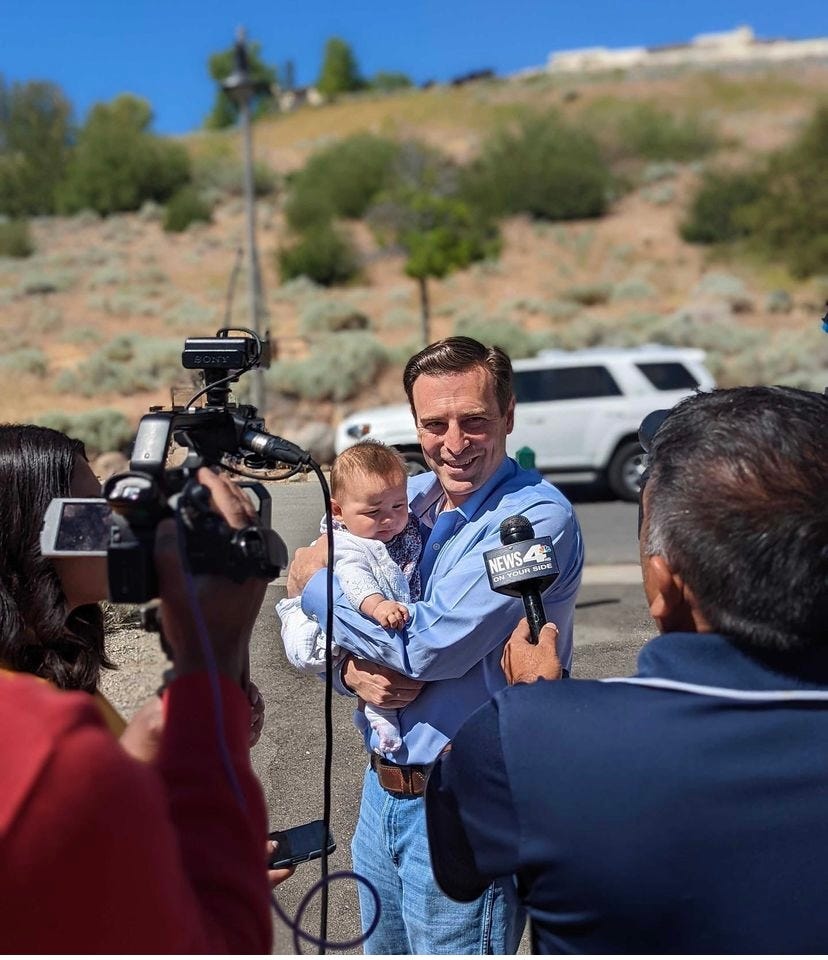Adam Laxalt once wondered if gays could integrate into society. Does he need to reconcile that now?
The GOP Senate nominee in Nevada has expressed strident views about the homosexual lifestyle. Should anyone care 12 years later?
When the Supreme Court draft opinion to overturn Roe v. Wade leaked six weeks ago, one of the myriad questions that percolated amid the fallout was what other established federal rights might be in the line of sight of the six conservative jurists.
“If Roe Falls Is Same-Sex marriage Next?,” asked The Times.
The speculative, if not conclusive stream of consciousness was: Completely possible.
“While some rights are pretty clearly protected in the Constitution (speech, press, religion, for example), you won’t find the words ‘abortion’ or ‘gay marriage,’” noted a column in The Idaho Statesman.
Even President Joe Biden weighed in to warn that because the draft opinion indicated “there’s no such thing as a right to privacy…mark my words: They are going to go after the Supreme Court decision on same-sex marriage.”
Gay rights really haven’t been a burning political issue ever since the High Court guaranteed the legality for gay and lesbians to wed seven years ago this month in 2015. Democrats loudly celebrated the decision and Republicans, for the most part, were happy to wipe their hands of the thorny question, shrugging that the issue was now settled law, regardless of their personal, moral or religious beliefs.
The impending threat to Roe demonstrates how the detente on gays could melt away.
Though only if Democrats want it to.
In a midterm where the party is attempting to frame their GOP opponents as eager to strip away hallmark freedoms, from a woman’s right to choose to terminate a pregnancy to the ability to cast a ballot without undue hurdles, the potential threat to gay rights seems packed with unexpected potency in battleground races that will be decided by just tens of thousands of votes. Or less.
On Tuesday night, one of those margin-of-error races was formally joined when Adam Laxalt, a former attorney general in Nevada, secured the Republican nomination to challenge first-term Democrat, Catherine Cortez Masto. The Nevada race will be one of six highly competitive contests that determines party control of the U.S. Senate.


